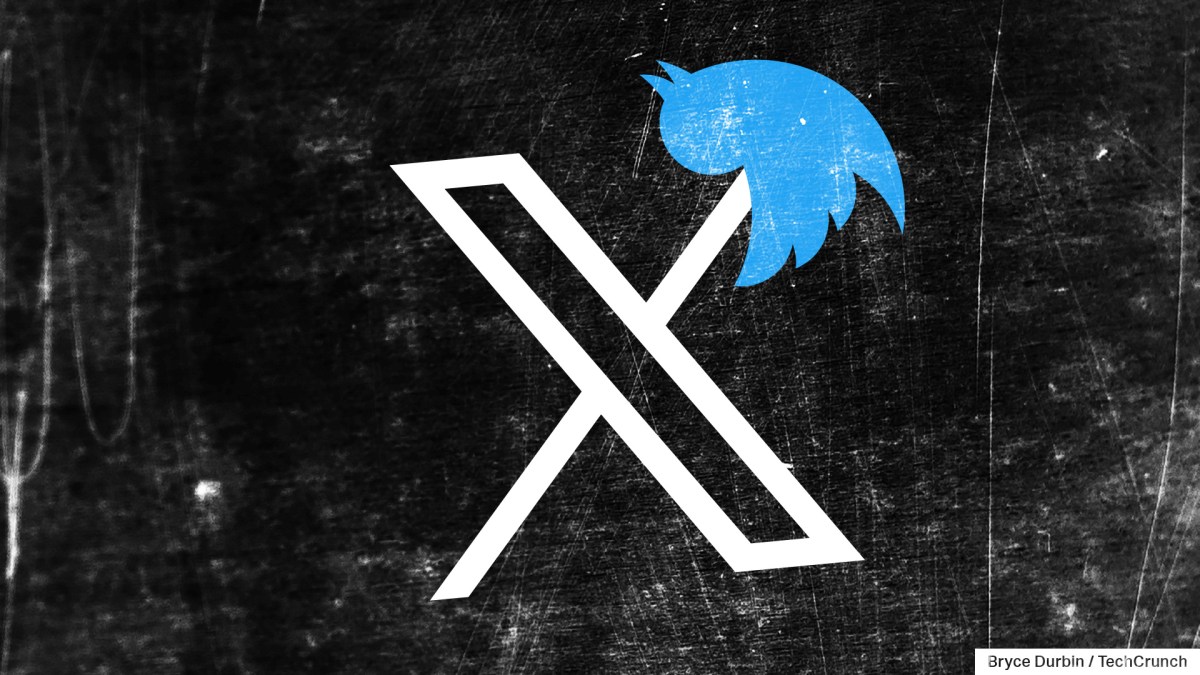X, formerly known as Twitter, was throttling traffic to websites that the social network’s owner Elon Musk publicly dislikes. The platform slowed down the speed it takes when accessing links to a handful of websites, including The New York Times, Instagram, Facebook, Bluesky, Threads, Reuters and Substack. The platform appears to be reversing the slow access to news sites on Tuesday afternoon.
If you have an issue with Reuters, you have an issue with free press. Motherfucker’s a free speech ablutionist.
the only free speech elon care’s about is his own.
and maybe those idiots that still think his farts are a breeze of fresh air.
literally. claims to be about free speech, buys an open speech platform… forces everyone to pay. ‘free speech’
also like the first thing he did was ban that kid that was tweeting his trips.
He is except if you are in Turkey or if you say something he does not like.
If you’re still using Twitter, you’re part of the problem.
Its been a long time I left twitter , moved to mastodon!
Not sure why you’re being downvoted, you’re absolutely right. I stopped using it the day he took over and anyone still using it is helping prop it up.
I see it’s time to dust off these old Net Neutrality bumper stickers.
Neutrality is about ISPs being content-neutral. Xfinity won’t block or slow down access to Netflix, for example.
One website doing shitty things is just shitty. Twitter is not a ISP. If you don’t want to sit through their
setTimeout(), go to the destination directly.Net neutrality has never been about forcing content platforms to accommodate their competitors.
Well that an illegal trade practice.
What law does this violate?
Unfair trade practices. Customers can file complaints with the FTC which can levy fines or sue on behalf of the people. Websites being throttled can file civil lawsuits in state courts for unfair and deceptive trade practices or interference with prospective advantage.
Has anything remotely like this ever been litigated before? All I can find is that Unfair Trade Practice usually deals with “misrepresentation, false advertising or representation of a good or service, tied selling, false free prize or gift offers, deceptive pricing, and noncompliance with manufacturing standards,” none of which cover throttling access to other sites from your own. I agree that this is shitty and everyone should get off Twitter, but to say it’s illegal seems like a bit of a stretch.
It’s been litigated. Usually websites are immune under Section 230, but this is bad faith. They aren’t removing content for a legit reason such as spam or piracy, it’s strictly to thwart competition and divert traffic to handpicked news websites that Elon Musk doesn’t like; that’s bad faith, in my book.
Unfair competition is the term I was looking for. Unfair trade practices is a type of unfair competition. Federal and state laws prohibit it.
The case can be made that X is doing this without telling consumers and without their consent, while promising free speech. More bad faith.
Threads has the best case.
From your link:
Unfair Practices An act is unfair when it meets the following criteria:
It causes or is likely to cause substantial injury to consumers.
It cannot be reasonably avoided by consumers.
It is not outweighed by countervailing benefits to consumers or to the competition.
All the statutes have these catch-alls. There is no set definition of what constitutes an unfair practice.
They aren’t removing content for a legit reason
They aren’t actually removing content at all. They’re just adding a 5 second delay to websites they don’t like. I still think it would be an uphill battle to try to prove that this causes “substantial injury to consumers” or that it “cannot reasonably be avoided by consumers” since they could still go to the website on their own.
I don’t really think the “promises free speech” argument would fly either because that would open the door to sue over anyone moderating anything at all, leaving aside that the term “free speech” as it was used by Musk is subjective and was never defined by the platform. There was even a time where they just outright disallowed posting any link to other competitors and that was never challenged in court. The statutes do have catch-alls but that doesn’t mean there is no standard by which you have to measure up against to prove that it fits one of those categories.
Bad faith? Yes. Illegal? It’s definitely not clear cut, and it seems like the answer is probably not.
I said removing, I meant throttling. I maintain that bad faith content moderation favoring one site over another is actionable.
Twitter rolled back those hands after a few hours according to this article, which also mentions running a foul of anti competition laws, probably the reason for the sudden, quiet reversal.
https://www.thequint.com/explainers/twitter-policy-banning-links-to-social-media-platforms-elon-musk
deleted by creator
I uninstalled Twitter from my phone when it switched to X, so I stopped using it until yesterday when I was on my laptop and happened to hit my bookmark. Formerly a daily user.
Maybe I’m just getting older but it really felt different, like it lost the magic. The top trending term was a Trump re-election hashtag (which happened in the past but not like in August the year before an election), the biggest and most popular tweets were all about how censored they are and declaring a mysterious “they” were keeping down the authors, it really turned into Parlor while I wasn’t paying attention.
Caught a sick route in practice by Zay Flowers but other than that it was trash.
“Free speech absolutist”. Right. I intended to write that Musk is a clown, but I like clowns more than him, and I hate clowns.
Seems anti-competitive. If only we had laws against that kind of thing in the US.
Sure!!! When a billionaire DDoSes websites they say it’s legal, but when one hacktivist sends more than 1 request in 10 secods to a bad website, he goes to jail for 20 years!! We do live in a society!,
Did you even read the article?
A DDoS attack has almost the same effect in this case.












